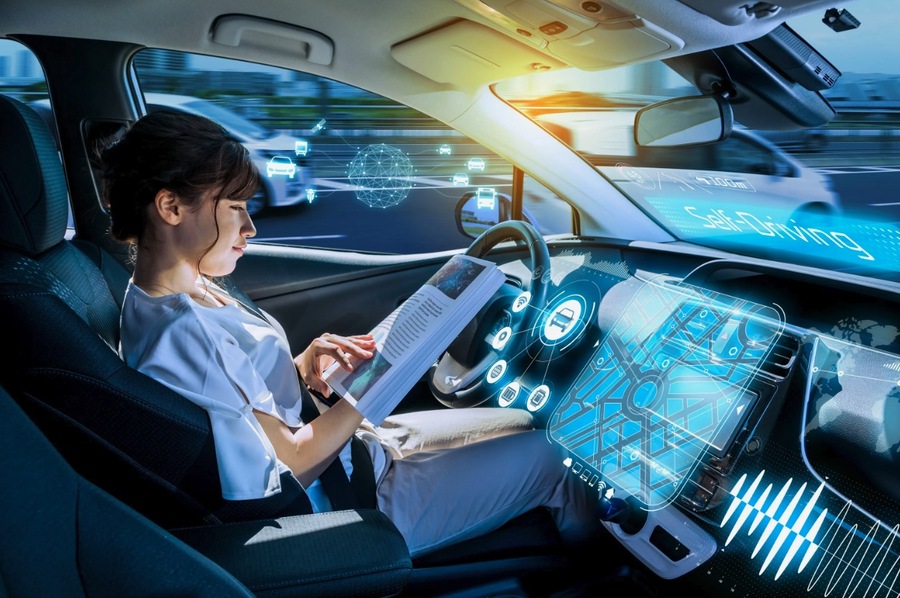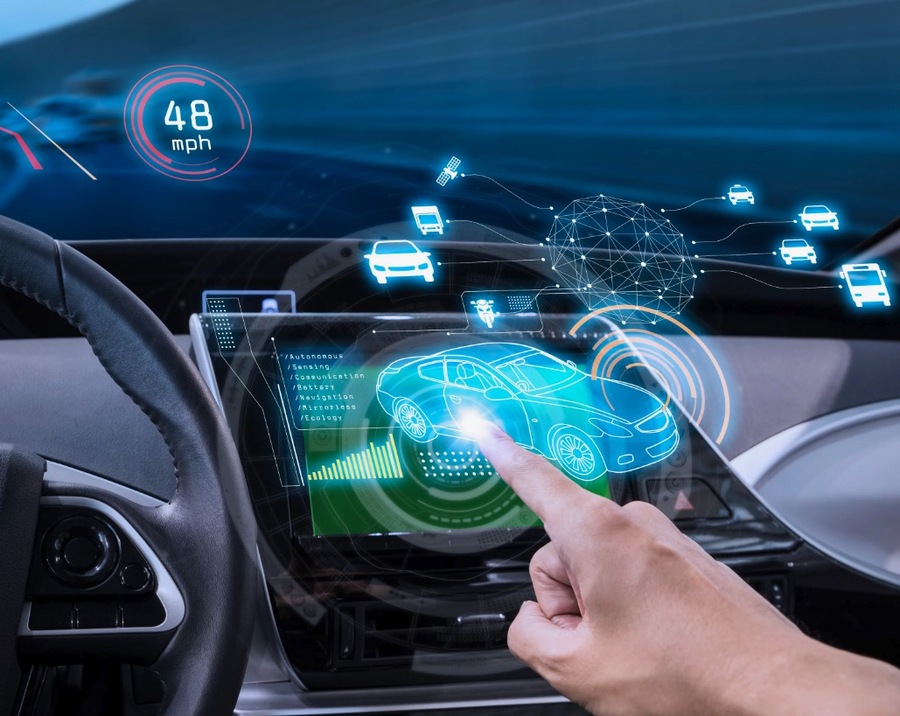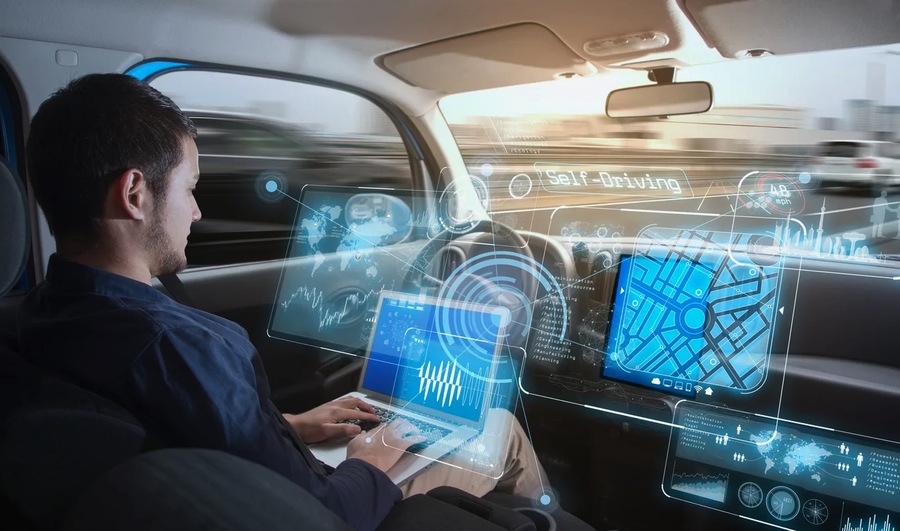Integrating new technology like telematics and artificial intelligence (AI) is transforming the car rental sector, which was previously dependent on manual procedures and human control. These developments improve client experiences, optimize fleet management, and increase operational efficiency. This article will examine how AI and telematics transform the rental vehicle industry using data, real-world examples, and current research.
The Role of AI in Car Rentals
Enhancing Customer Experience
AI is becoming essential for enhancing client communications and customizing offerings. For example, AI-driven chatbots may respond to various consumer inquiries around the clock, offering prompt assistance and freeing up human agents for more difficult jobs. Based on customer preferences, these chatbots may help with vacation recommendations, rental extensions, and even changes to existing bookings.
AI also makes customized marketing possible. Rental firms may provide individualized bargains and promotions by customizing their marketing tactics based on individual tastes, all achieved through the analysis of client data. This degree of personalization increases consumer pleasure, loyalty, and repeat business.
AI-powered systems can examine enormous volumes of data, including personal preferences, behavior patterns, and past rental records. Customized experiences may be created through this information, such as proposing particular cars based on a customer’s previous rental history or supplementary services like kid safety seats or GPS navigation systems. Rental firms may greatly increase client satisfaction and foster enduring loyalty by anticipating and satisfying their demands.
Predictive Maintenance
One of artificial intelligence’s primary advantages is its capacity to anticipate and avert car maintenance problems. Artificial intelligence (AI) systems can recognize patterns in data that point to possible issues before they arise by examining data from several sensors and prior maintenance records. Predictive maintenance helps to minimize downtime, guarantee that cars are constantly in top condition, and ultimately improve customer happiness and safety.
In addition to cutting operating expenses, predictive maintenance improves the rental fleet’s dependability and safety. AI may, for instance, track tire conditions, brake wear, and engine performance in real-time and alert users to possible problems before they get out of hand. This proactive strategy guarantees a lower likelihood of car malfunctions or breakdowns, giving consumers a seamless and worry-free rental experience.
Optimizing Fleet Management
Through AI-driven analytics, car rental firms may gain insights into fleet utilization, demand forecasts, and best pricing strategies. For example, AI can forecast demand surges by analyzing past rental data, seasonal patterns, and local events. This enables businesses to modify their fleet numbers and pricing dynamically, resulting in better asset utilization and more income.
AI also helps to optimize how cars are distributed across various areas. Companies may strategically place their fleet to maximize availability and reduce the risk of running out of vehicles by forecasting the locations and times of greatest demand. This intelligent distribution improves customer happiness and operational effectiveness by ensuring consumers can always locate the necessary cars, even during busy periods.

The Impact of Telematics
Real-Time Vehicle Tracking
Telematics technology, which combines informatics and telecommunications, allows live car tracking and monitoring. This skill depends on customer transparency and operational efficiency. By monitoring their fleet’s whereabouts, velocity, and use habits, rental firms can guarantee that the cars are utilized sensibly and returned on schedule.
Customers can also get useful information via real-time tracking. For example, renters can get driving instructions, anticipated arrival times, and car position updates. This transparency lowers uncertainty and offers peace of mind, which improves the consumer experience. Furthermore, rental firms may minimize costs and enhance security by promptly locating and retrieving vehicles in the event of theft, thanks to real-time tracking.
Enhancing Safety and Security
Telematics is also essential to improving vehicle security and safety. Cutting-edge telematics systems can identify risky driving practices, including speeding, hard braking, and sudden acceleration. Rental firms can prevent these behaviors by monitoring them and providing additional training or warnings to drivers. Additionally, by giving law enforcement authorities specific car positions, telematics can help with stolen recovery.
Telematics may measure a vehicle’s performance and health in addition to driving habits. Rental firms may avoid costly failures by having telematics systems that monitor engine performance, fuel usage, and other vital indicators and provide alerts when possible problems arise. In addition to increasing vehicle safety, this proactive maintenance strategy guarantees that consumers will obtain dependable and well-maintained automobiles.
Streamlining Insurance Processes
Insurance claims may be a major source of frustration in the vehicle rental sector. Telematics may streamline this procedure by providing precise data on vehicle usage and accident conditions. Telematics data, for instance, can provide information on the speed, location, and force of an impact in a collision. Both the rental firm and the client gain from the faster and more accurate claim settlements made possible by this information.
Additionally, usage-based insurance models, in which premiums are determined by real driving behavior rather than set rates, can be developed using telematics data. This strategy encourages tenants to drive sensibly by offering reduced rates to safe drivers. Rental firms may lower their total insurance prices and pass those savings down to clients by matching insurance rates to actual risk.
Avis Budget Group
Avis Budget Group has led the way regarding telematics and artificial intelligence (AI) integration. They have implemented a linked car platform that provides real-time information on vehicles’ state, location, and driving habits using telematics. With this technology, Avis has improved fleet management, saved maintenance costs, and provided clients with a flawless rental experience. Since using this technology, the organization has observed a considerable decrease in maintenance costs and vehicle downtime.
Avis has also used AI to enhance its pricing tactics. Artificial intelligence (AI) algorithms may dynamically modify rental rates to optimize income while maintaining competitiveness by evaluating market circumstances, rival pricing, and client demand. Avis has increased its market share and profitability because of this clever pricing strategy, illuminating the real advantages of AI integration.
Hertz
Hertz has optimized fleet management and customer service through artificial intelligence (AI). Their technology analyses customer data to forecast demand trends, enabling Hertz to place its vehicles across various areas strategically. This predictive capability raises customer happiness and boosts operational effectiveness by guaranteeing that consumers can access cars when needed.
Hertz employs AI not only to estimate demand but also to improve their maintenance procedures. Artificial intelligence (AI) systems can determine when a car needs repair and arrange it at the most convenient times by tracking vehicle performance data. This proactive strategy improves clients’ rental experience by lowering vehicle downtime and guaranteeing well-maintained cars.
Enterprise Rent-A-Car
Enterprise Rent-A-Car has also incorporated telematics to improve business processes. By outfitting their fleet with cutting-edge telematics technology, enterprises can optimize fleet allocation, manage maintenance requirements, and monitor vehicle usage. With the help of this real-time data, they can react swiftly to shifting circumstances and ensure their fleet is always prepared to satisfy client needs.
Enterprise has also used telematics to enhance its renting procedure. For instance, it provides a mobile app that lets users use their cell phones to find and unlock their rental cars. Thanks to this self-service option, customers will have a more convenient experience and shorter wait times.
Recent Trends
According to a recent McKinsey & Company report, telematics and artificial intelligence (AI) can potentially revolutionize the automobile and transportation sectors. According to the survey, businesses that use these technologies may cut operating expenses by up to 30% while increasing customer satisfaction by 15%. Additionally, according to MarketsandMarkets’ Global Telematics Market analysis, the growing use of connected automobile technologies in the leasing and rental industries will propel the telematics market to reach $62.6 billion by 2025.
The worldwide AI in transportation market is anticipated to reach $3.5 billion by 2026, expanding at a compound annual growth rate (CAGR) of 17.5% between 2019 and 2026, according to research by Allied Market Research. The growing need for AI-driven solutions in fleet management, predictive maintenance, and driverless cars drives this expansion. Car rental businesses could anticipate considerable increases in productivity, cost savings, and customer satisfaction as long as they continue to use this technology.

The Future of Rental Automobiles
The auto rental business is set for more change as telematics and artificial intelligence advance. Integrating these technologies will probably result in more self-sufficient and networked rental fleets, bringing hitherto unheard-of efficiency and ease. AI-driven autonomous cars for rental fleets are one potential future innovation that might improve the rental experience even further by eliminating the need for rental offices and offering door-to-door service.
In conclusion, AI and telematics are transforming the automobile rental business by increasing operational effectiveness, boosting vehicle safety, and offering customized client experiences. Rental companies that use these technologies will be well-positioned to lead the industry, providing top-notch services and spurring expansion in an increasingly competitive environment.
By implementing telematics and artificial intelligence, car rental firms can satisfy their clients’ changing needs and save substantial money. Because of the power of cutting-edge technologies, car rentals have a bright future ahead of them.
Because technology is advancing quickly, automobile rental firms must be flexible and willing to try new things. Companies may improve their operations and prepare for potential disruptions by staying ahead of the curve and investing in telematics and artificial intelligence (AI). In the not-too-distant future, autonomous cars, for example, are predicted to become a reality. Early adopters of AI and telematics will be better positioned to integrate these developments into their fleets effortlessly.
Additionally, new opportunities for automobile rental firms are presented by the growth of shared mobility services and shifting customer preferences towards sustainable transportation solutions. By utilizing AI and telematics, businesses may create cutting-edge services like electric vehicle rentals, car-sharing programs, and subscription-based models. These products and services support a more sustainable and effective transportation ecology in addition to meeting the changing demands of contemporary customers.
Conclusion
Not merely catchphrases, AI and telematics are potent instruments that are radically changing the automobile rental sector. These technologies provide many benefits that boost development and competitiveness, from optimizing fleet administration to promoting vehicle safety and customer experiences. Car rental firms that use AI and telematics will be well-positioned to handle the problems and take advantage of the possibilities as the industry changes.
In a world where efficiency, personalization, and convenience are critical, telematics and AI integration are a must, not a choice. By utilizing these technologies, car rental firms can provide outstanding value to their clients, optimize their business processes, and set the stage for a day when renting a car is as simple and pleasurable as possible. The trip has only begun, and many amazing opportunities are ahead.

Skydiver, ramen eater, DJ, Saul Bass fan and front-end designer. Acting at the fulcrum of minimalism and sustainability to develop visual solutions that inform and persuade. I sometimes make random things with friends.



